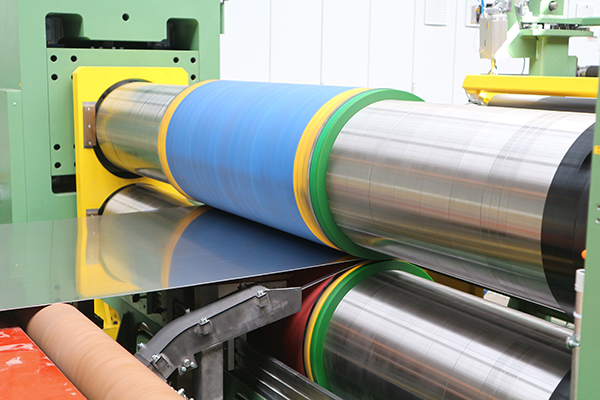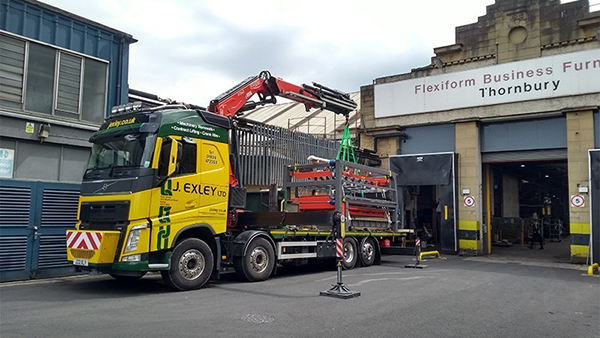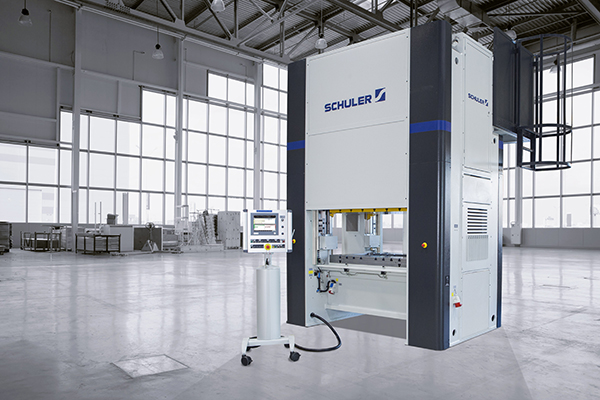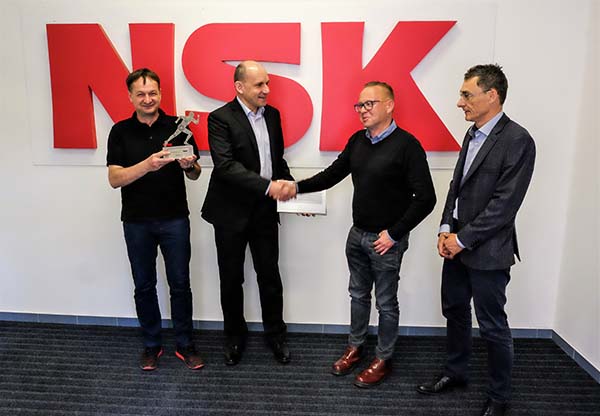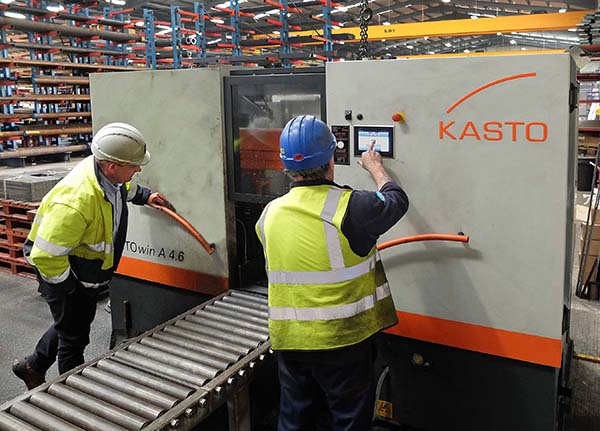Established in 1892 and employing more than 200 staff, family-run firm Thomas Graham & Sons, now in its fifth generation, operates a multi-faceted business in Carlisle. One division is devoted to steel stockholding, which has seen a significant rise in cutting capacity following the purchase of a new KASTOwin A 4.6 bandsaw built by Kasto, Germany and supplied through its Milton Keynes subsidiary.

The machine was installed in 2018 specifically to fulfil a new contract for cutting 350 tonnes of mild steel alloyed with boron, every year. Used by a forestry industry truck manufacturer for producing chain links, the lengths of flat bar need to have a high boron content to promote hardness during heat treatment.
Bundles of 24 bars of 50 x 20 mm cross section and with two bevelled edges are sawn into 280 mm lengths, each cycle comprising 10 cuts, producing 240 billets. The bars are removed from the output roller table before the next cycle starts.
Thomas Graham’s operations director Phil Barnes, who has been with the company for 17 years, says: “The KASTOwin is our first bandsaw from this supplier but our 11th on site. Boron steel isn’t especially difficult to cut using a standard bimetal blade, so it’s a simple contract to fulfil, but the automatic Kasto saw does it extremely well, day-in day-out, easily holding the required ±1 mm tolerance.
“We were expecting each bundle cutting cycle to take eight hours, but in fact it is completed in just three and a half hours,” he adds.

He goes on to explain that the high performance is partly down to the 10 minutes per cycle that is saved by the Kasto saw’s ability to start the trim cut automatically when each new bundle is loaded. On other machines it is necessary first to cut the bundle to level the face, then measure the bar before production can start.
More important for achieving the high level of productivity is the adaptive down-feed on the bandsaw, which is called KASTOrespond. This function allows a band feed rate that is higher than would otherwise be feasible, as it is automatically backed off momentarily if the built-in pressure sensor detects a rise in cutting force. An unexpected spike in cutting force can occur as the blade reaches transitions between layers of bars in the bundle, or if it encounters a hard spot in the material. Optimal force on the blade is therefore maintained throughout the cycle, ensuring a good quality of cut and avoiding damage to the blade.
Barnes says: “When it came to buying a new bandsaw for this work, bearing in mind we use three makes other than Kasto, we benchmarked various options and asked the potential suppliers to process a sample batch of our boron steel. Our welding division manager Jim Hunter and I were impressed with the Kasto demonstration at their Milton Keynes showroom, added to which the price of the machine was acceptable. In particular, we appreciated the consultative nature of their sales approach, which prompted us to place the order.”

The fully-automated bandsaws from the KASTOwin range have been designed for mass production sawing of solid material, tube and profile. Designed in Germany and manufactured on state-of-the-art production flow lines at assembly plants in Achern and Schalkau, KASTOwin machines are said to create the conditions for optimum efficiency.
Each machine can be customised to the specific application using a modular design system, while rapid motion is said to be assured using servo drive and ball-screw spindle technology for the material feed and linear guided saw frame. Further features include: automatic band guide arm adjustment; quick and easy programming via a colour touchscreen; SmartControl to ensure high bandsaw blade lifetimes; and incremental feed for cutting batches of short workpieces.
Since the bandsaw was installed at Thomas Graham & Sons, the higher-than-expected productivity on the boron steel job has provided spare capacity for general purpose cutting of engineering steel bar, such as EN8 and EN24T, from 10 to 300 mm in diameter, either singly or in bundles. Barnes advises that work transferred from other machines onto the Kasto is completed in approximately half the time, commenting further that when the operator returns to the saw, the job is nearly always finished and ready to be unloaded.
The stockholder’s management is in no doubt that the KASTOwin is highly beneficial to business, not only due to the bandsaw’s productivity on the contract for which it was purchased, but also because of the machine’s ability to cut other materials, including stainless steel and aluminium, so precisely. A tolerance of -0, +1 mm is held routinely, saving wastage by not having to program extra allowance, as would be the case on the company’s other, less accurate saws.

In conclusion, Barnes says: “We have an evolving customer base, more than half of which requires material cut to size, so bandsawing is a crucial function for us. Certainly the KASTOwin has been a revelation in terms of its productivity and accuracy of cut.
“We’ve also been impressed with Kasto as a company and feel that we have entered into an alliance whereby we can consult with them on bandsaw technology and receive unbiased advice,” he states.
For further information www.kasto.com







